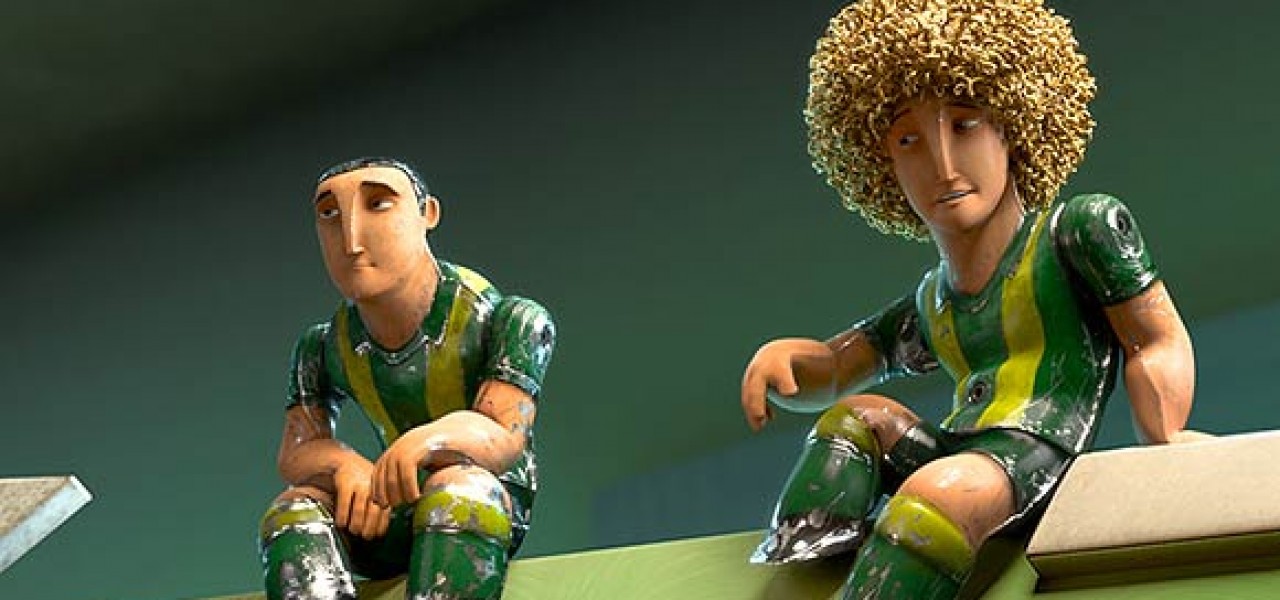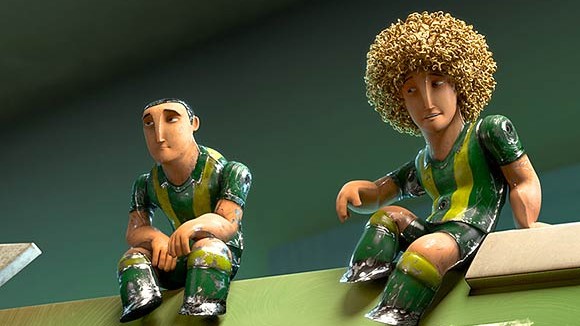

Can South America’s Most Expensive Animated Film Compete with American Blockbusters?

The top three grossing films at the Argentine box office this year are all animated: Monsters University, Despicable Me 2, and Metegol. If the last film sounds unfamiliar, that’s because Metegol (aka Foosball) is a homegrown animated feature from Argentina directed by one of that country’s most respected filmmakers, Juan José Campanella. His 2009 film El secreto de sus ojos (The Secret in Their Eyes) won the Academy Award for best foreign language film.
Metegol cost $22 million, which makes it the most expensive film, animated or otherwise, ever produced in Argentina, as well as the most expensive animated feature ever made in South America. The film was funded by a Colombian oil exec Jorge Estrada Mora, whose resources allowed Campanella to set up an animation studio in Buenos Aires and hire advisors like Disney animation veteran and Despicable Me story originator Sergio Pablos. These details are discussed in a New Yorker piece, which is the most in-depth write-up the film has received in the American media.
It doesn’t appear that the film has a U.S. distributor yet, but that’s irrelevant. The film has already proven to be a financial success thanks to strong foreign sales in Europe, Latin America and Asia, as well as the massive success on its home turf.
Low-to-mid-budget foreign animated features are increasingly common from every corner of the world, and as I’ve said before in interviews, such films stand a better chance of breaking out when they don’t attempt to replicate the form and subject matter of big-budget American animated features. The producers of Metegol charted their own path and avoided Americanizing the film, Ian Mount writes in the New Yorker:
Metegol is full of childhood magic and underdog heroics, and astutely plays on the fame of international soccer icons. The nerdy protagonist bears more than a passing resemblance to FC Barcelona’s Argentine star, Lionel Messi, while the villain has the arrogance and good looks of Real Madrid’s Cristiano Ronaldo (whose smug grin and perfect hair have made him a real-life villain for soccer fans worldwide). The movie, even though it embraces universal themes and looks like a Hollywood product, also feels distinctly Latin and Argentine, from the characters’ Italianate gestures and soccer-mullet hairstyles to their ironic, rapid-fire humor.
Last summer, a lot of American media outlets complained that the animated feature marketplace was overcrowded. They should brace themselves because it’s only going to become more crowded and more competitive as other countries start to distribute their films around the globe.

.png)